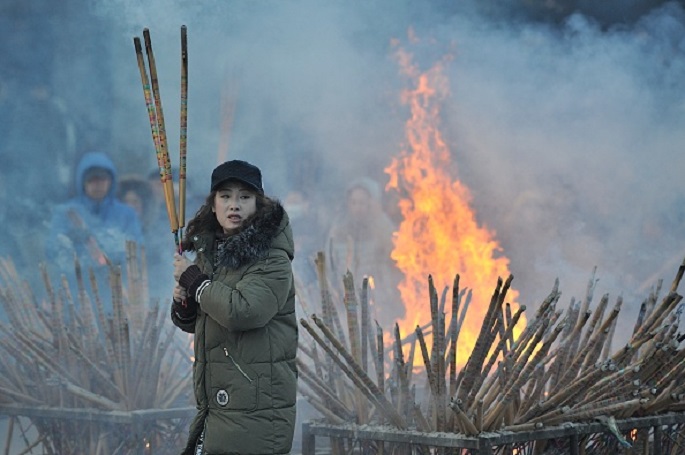Celebrating the Chinese Lunar New Year or Spring Festival in China comprises a series of vibrant sights and sounds, from the cheerily pulsating lion and dragon dances to the strikingly serene rising of lanterns at nighttime to simple yet intimate reunions.
It also involves a scene of a lone wife in the kitchen preparing to face the stacks of bowls at the sink. Well, she previously gathered them by herself from the dinner table.
After all, in between such merry-making, whom does the household expect to wash the dishes?
Zhang Yiqian, a wife, wrote an opinion piece for Global Times where she expressed her thoughts about how, despite gender equality, feminism should still matter, her reflections triggered by the recent Spring Festival.
Zhang shared the fate of her cousin Lin, a housewife, as a fitting case worthy of contemplation.
“Lin’s story became my worst nightmare,” she said.
She attended Lin’s wedding day, the last time she saw her. A decade has now passed.
According to Zhang, since Lin got married, her cousin has not been able to attend family reunions held every Chinese New Year.
Oddly surprising, the house she shares with her husband is an hour drive from her hometown.
Another cousin of Zhang once visited Lin during Spring Festival. Lin was about to cook, washing some vegetables when this cousin arrived.
The cousin told Zhang that Lin’s husband was not around. Her in-laws were there but watching TV.
After their meal, Lin dutifully wiped the table clean and proceeded to the kitchen to wash the dishes.
The in-laws never bothered to help Lin. Their son displayed the same sense of entitlement.
Lin’s husband, according to the cousin, did not offer to assist Lin even in the presence of his wife’s very own relative.
Lin’s experience as a housewife troubled Zhang.
“It bothered me so much that when I got married last year, I swore this was not going to be an issue in my life,” she said.
It could be said that Zhang got a bit luckier than Lin on one particular aspect: Zhang and her husband calmly settled the matter of taking turns visiting one’s parents during Spring Festival.
The fact that her married friends defended their right to be with their parents on this special occasion delights Zhang.
She said, “We are all our parents’ only children and we all need to keep them company during the holidays.”
Lin’s newfound family has actually forbidden her to visit her parents, citing the age-old tradition where the wife stays put in her husband’s house.
So, who or what really prevents Lin from bonding with her parents on Spring Festival? Tradition or her in-laws? Which is which?
Zhang stressed that more and more women nowadays have started “taking control of their own personal lives” and becoming more vocal in pronouncing their rights.
Many women now dispute some social norms and traditions, which, as one friend of Zhang from Shanxi puts it, are “really discrimination against women in disguise.”
When CCTV presented its annual Spring Festival Gala, people watched a skit where a woman filed for divorce because she cannot give her husband a child. Another skit showed an overjoyed husband and his wife who gave birth to a baby boy.
Through a WeChat group, one feminist said that such skits limit the role of women in society. Fellow feminists likewise rebuked the skits.
On a broader view of feminism, Professor Dai Jinhua from Peking University, a scholar of gender studies, said that it entails women using their experience to contribute to society, according to Women of China.
“The greatest significance of feminism lies in women providing new resources and creations to the world with their own life experience, other than merely equal rights or gender antagonism, said Dai.
Zhang, on the other hand, underscores the role of education in feminism and how it helps shape women’s mindset, particularly when they settle down and become wives. For her, it serves as a tool for women to empower their own selves.
For one female writer, it takes more than earning a degree, getting a job and being financially independent.
“What I mean when I talk about strong modern women are those who are independent not only materially but also spiritually,” said Li Xiaoyi, author of “Live Life, Grab Love.” quoted Women of China.
For Lin and those wives who are in a similar situation like hers, perhaps sharing the household chores with the husband and celebrating Spring Festival with their parents would suffice, at least, for the meantime.



























